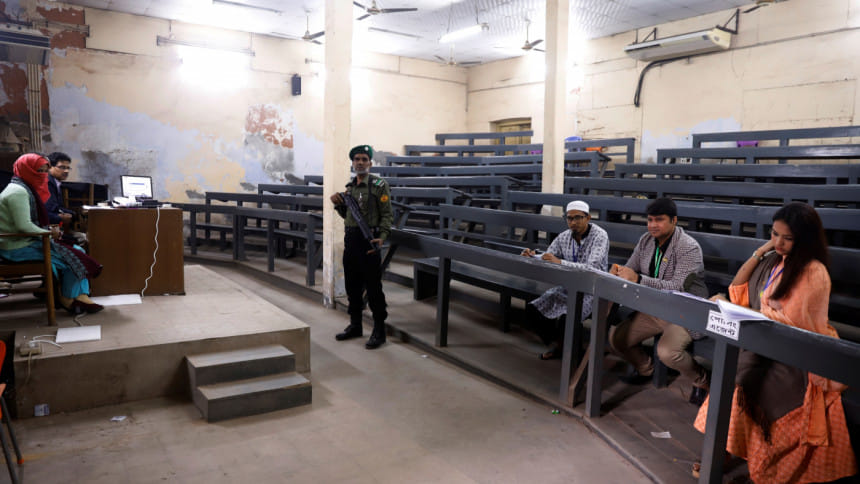Do we understand the meaning of low voter turnout?

Low voter turnout happens in many places of the world. But never so in Bangladesh, till lately. Ours always used to be one of high to very high voter turnout. Simply because, as Bengalis, we took our political participation seriously and voted with earnestness. But not so now; because we have lost faith in what goes on in the name of elections. We no longer believe that what we vote and what comes out as the result of that voting are the same. To put it bluntly, we have lost faith in the system.
We are not sure our people in power truly understand what that losing of "faith in the system" really means. When voters turn away from the most effective means of participation in the governance process, when they are reluctant to proudly show the world the single most important "symbol" of being a citizen in a democracy, when they prefer to spend time with their family rather than take the trouble to vote because they believe that such an effort will make no difference in the outcome and finally when they believe that election is a mere show without substance; then we are in serious trouble with our democracy.
It is quite inconceivable that Dhakaites—the residents of one of the most challenged cities of the world, a city that needs literally everything to be fixed (roads, garbage collection, transportation, water supply and quality, health facilities, noise pollution, air quality, education, not to mention safety of women and traffic, to name only a few)—will desist from voting because they no longer believe that they have the capacity to bring about any change.
Nothing speaks louder about the state of our democracy than the voters refusing to vote. Obviously, the real culprit is our overall political atmosphere, which is fundamentally stifling and intolerant of dissent. But the culprit nearer to home is the Election Commission. Earning public trust never seemed to be the priority of this body and the gradual but definite decline of trust never seemed to have bothered it either.
If there be any lesson from this election, let it be about low voter turnout and what it means for our democracy. Let our efforts be directed to reversing this process.

 For all latest news, follow The Daily Star's Google News channel.
For all latest news, follow The Daily Star's Google News channel. 



Comments